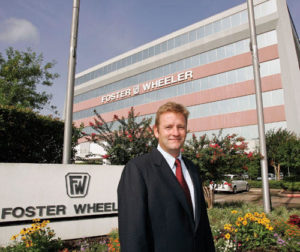
Foster Wheeler advances new biofuel process
Zug, Switzerland, Foster Wheeler AG (FW) has reported encouraging results from the initial testing of biomass produced at PetroAlgae Inc’s micro-crop farm in the US.
The biomass, which is being tested as a delayed coker feedstock supplement to provide renewable biofuels to the market, is sustainable and lends itself readily to commercial-scale production, FW said.
Testing was conducted at a commercial coker testing facility operated by the College of Engineering and Natural Sciences at the University of Tulsa, Oklahoma.
A combination of PetroAlgae’s proprietary patent-pending biomass production system, and FW’s SYDECSM delayed coking technology, is being developed to allow the delayed coker to incorporate biomass into the coker feedstock, with minimal configuration changes to an existing unit.
Testing was conducted to demonstrate that the biomass is an effective add-in complement to vacuum residue coker feedstock, and does not significantly affect overall coker operations. The initial test results demonstrate that biomass, mixed with vacuum residue, yields additional valuable hydrocarbons as a result of biomass carbohydrate and lipid decomposition.
[ad]
Further testing and engineering development is underway to optimize process parameters and feedstock blend ratios.
“We are very pleased with the results from our initial testing of PetroAlgae’s biomass that generates green fuels from a blend of biomass and petroleum vacuum residue,” said Umberto della Sala, president and chief operating officer of FW.
“These results could lead to a change in the way refineries look at biofuels in the future, as we believe this presents a commercially scalable source of biomass which produces a true ’drop in’ feedstock which is compatible with the entire existing transportation fuel infrastructure.”
Source theengineer.co.uk

